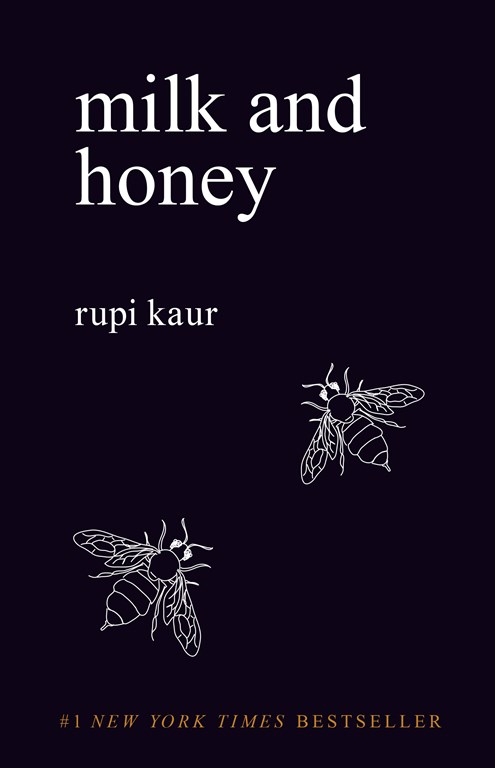Who says people don’t read poetry anymore? During the past several months, all my girlfriends have been reading the same collection of poetry. Now, these are twentysomethings who barely read any of the books I send them—let alone poetry—and they don’t buy books regularly. So it meant something when all these young women were raving about Rupi Kaur’s MILK AND HONEY. When I finally decided to pick up this extraordinary collection of poems, I immediately understood why everyone is so obsessed.
MILK AND HONEY is grounded in the everyday experiences of women and bears witness to both the beautiful and the brutal sides of being a woman. The collection is divided into four chapters—the hurting, the loving, the breaking, and the healing—each dealing with a different kind of experience and pain. In the hurting, Kaur explores a woman’s education of her body and how punishing it can feel when a woman realizes her body is not always her own. The loving is about falling in love with a man, but also with yourself. In the breaking, I could physically feel the pain and torment of falling out of love, of desperately clinging to something you know is already gone. The healing is my favorite chapter, full of self-love, forgiveness, solidarity, and hope.
Kaur writes about survival and how essential survival is in the face of violence, rape, love, loss, and femininity. Most striking is that she writes about these tough subjects with such subtle nuance and grace. Her poems are short and succinct, often no more than a few lines, and written in a kind of staccato. She delivers a sharp truth in each poem but gives you the time and space to process that truth. Every word feels genuine and evokes such strong emotion.
Don’t believe me? You can ask my sisters, neither of whom are avid readers. I gave them both copies of MILK AND HONEY for Christmas and insisted, in my typical big-sister fashion, that they read these poems. They did, and they loved them just as much as I do. We ended up talking about how comforting the sentiments in these poems are for young women—especially those who may have experienced some of the trauma described, but didn’t have the vocabulary to discuss their experiences before and didn’t have a definitive understanding of what constitutes rape.
MILK AND HONEY gave me the freedom from shame and the courage I desperately needed to finally open up about a college rape incident. As young women, these conversations are more important now than ever and I’m so grateful this book gave me the platform to talk about it. The poems are that powerful and that affecting.
MILK AND HONEY feels like is a conversation. Like therapy. It’s the support beam I needed when my world felt shaky after the recent election. It’s a celebration of both the bitterness and sweetness of life and a reminder of inner strength. I’d argue that it’s the one poetry collection every woman—and really, every man—needs to read.









